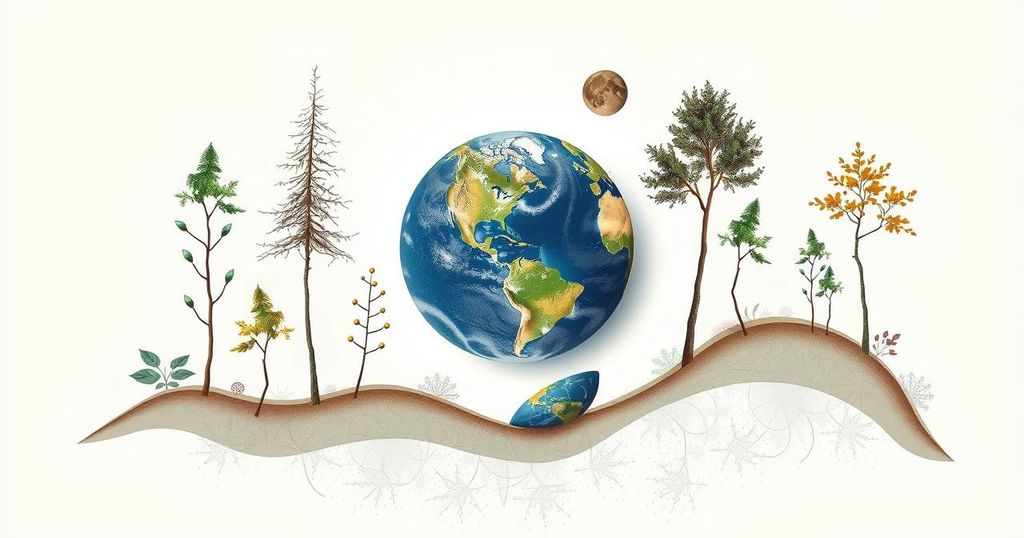The World Economic Forum’s Global Risks Report identifies armed conflict, misinformation, and environmental concerns as major challenges for global leaders. Based on a survey of over 900 leaders, the report underscores the urgency of addressing these issues, particularly amidst ongoing geopolitical conflicts and climate changes. It highlights the necessity for collaboration among nations to mitigate these risks and promote global stability.
The World Economic Forum’s Global Risks Report highlights armed conflict, misinformation, and environmental risks as primary concerns for global leaders. This report is based on insights from over 900 leaders surveyed in late 2024, just before the annual Davos meeting. The current geopolitical climate is particularly alarming due to the ongoing conflicts in Ukraine and the Middle East, exacerbating global instability.
State-based armed conflict has emerged as the most urgent risk for 2025, driven by the aftermath of the Russia-Ukraine war and escalating tensions in the Middle East. The report discusses how actions taken by a new U.S. administration could significantly influence potential outcomes in these regions.
Misinformation remains a pressing short-term concern, eroding societal trust and increasing polarization. Respondents emphasize the challenges posed by differentiating AI-generated misinformation from human-produced content. Other short-term risks include extreme weather, cyber warfare, and pollution, which ranks sixth.
Long-term risks predominantly focus on environmental issues, including extreme weather events and biodiversity loss. Extreme weather is anticipated to be the most significant threat in the next decade, with respondents expressing a pessimistic view of the world’s future. Pollution is a growing concern, particularly among younger demographics.
The report suggests a future of global fragmentation, marked by competition among major powers, which will test multilateral cooperation. Leaders are called to foster dialogue and collaboration to mitigate these emerging risks. The WEF emphasizes the need for a unified response to rising geopolitical tensions and a strategy for sustaining global trust.
The Davos event is set to commence alongside the U.S. presidential inauguration, signaling potential disruptions in international cooperation. The WEF’s message is clear: addressing these complex challenges requires collective resilience and long-term strategies for sustainable global governance.
This article derives from the World Economic Forum’s Global Risks Report, a seminal document providing insights into the perceptions of global leaders regarding the most pressing risks faced by the international community. Produced ahead of the annual meeting in Davos, the report outlines critical themes shaping the geopolitical landscape, particularly in light of recent conflicts, misinformation, and climate challenges. Understanding the historical context of these issues is vital for grasping the report’s implications on global stability and cooperation.
In conclusion, the Global Risks Report serves as a crucial reminder of the multifaceted challenges that lie ahead, particularly with respect to armed conflict and environmental sustainability. The report calls upon global leaders to collaborate effectively to navigate these complex issues and work towards a resilient and cohesive international landscape. It is essential for governments to engage in dialogue, rebuild trust, and prioritize cooperative mechanisms to address the risks outlined.
Original Source: healthpolicy-watch.news







